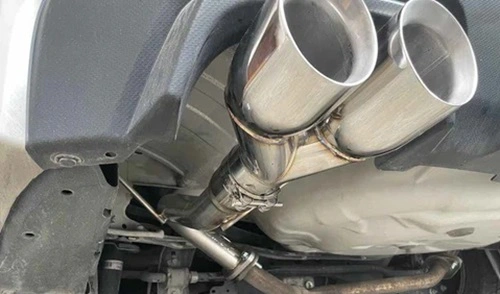Yes, in most states in the United States, it is illegal to operate a vehicle without a muffler. The majority of state and local laws require vehicles to have properly functioning mufflers to minimize noise and pollution. Driving without one can lead to citations, fines, or even impoundment of the vehicle in certain cases. However, the specific regulations regarding mufflers vary depending on the state and municipality.
What Does the Law Say About Mufflers?
1. Purpose of a Muffler
- Mufflers are designed to reduce the noise emitted by the exhaust system of a vehicle and help minimize environmental noise pollution.
- They also contribute to the efficient operation of the vehicle’s exhaust system, aiding in emissions control.
2. Federal Standards
- The Environmental Protection Agency (EPA) sets noise emission standards for motor vehicles under the Noise Control Act. While this federal law provides a baseline, enforcement is typically left to state and local governments.
3. State-Specific Laws
- Most states have laws mandating that vehicles be equipped with mufflers in good working order and prohibiting excessive noise or modified exhaust systems that bypass the muffler.
Example: California Vehicle Code Section 27150 requires all motor vehicles to have a muffler in constant operation and prohibits bypass devices or cutouts. Similarly, New York Vehicle and Traffic Law Section 375 outlines noise limits for vehicles and mandates functioning mufflers.
Penalties for Driving Without a Muffler
1. Traffic Citations
- If a vehicle is found to be operating without a muffler, the driver may receive a ticket for a traffic violation. The fine can range from $50 to several hundred dollars depending on the state and severity of the infraction.
2. Vehicle Inspection Failures
- In states that require regular vehicle inspections, a missing or non-functional muffler will likely cause the vehicle to fail inspection. This may prevent the vehicle from being registered until the issue is resolved.
3. Noise Ordinance Violations
- Cities and counties often have noise ordinances that regulate excessive noise from vehicles. Violating these ordinances can lead to additional fines or penalties.
Exceptions to Muffler Requirements
1. Off-Road Vehicles
- Some states allow off-road vehicles, such as dirt bikes or ATVs, to operate without mufflers in designated areas. However, these exemptions do not apply when the vehicle is driven on public roads.
2. Classic Cars and Show Vehicles
- Certain states provide exceptions for classic or antique cars, particularly if the vehicle is only used for exhibitions or parades. However, even these vehicles may need a muffler when operated on public roads.
3. Track and Race Vehicles
- Cars specifically designed for racing and used exclusively on racetracks are generally exempt from muffler requirements. These vehicles are not allowed on public roadways without modifications to meet state standards.
Reasons to Ensure You Have a Muffler
1. Noise Reduction
- A functioning muffler minimizes disruptive noise, ensuring compliance with noise pollution laws and avoiding complaints from neighbors or other drivers.
2. Emission Control
- A properly installed muffler helps reduce harmful emissions, contributing to better air quality and adherence to environmental standards.
3. Avoiding Legal Trouble
- Installing and maintaining a muffler ensures compliance with state and local laws, reducing the risk of fines or vehicle impoundment.
Common FAQs
Q1. Can I drive my car without a muffler?
Ans: No, most states require vehicles to have a functioning muffler. Driving without one can lead to legal penalties.
Q2. Is a muffler delete illegal?
Ans: In many states, yes. A muffler delete, where the muffler is intentionally removed to increase exhaust noise, typically violates noise pollution and vehicle equipment laws.
Q3. What is the fine for not having a muffler?
Ans: Fines vary by state but usually range from $50 to $500, depending on the severity of the violation and the applicable noise laws.
Q4. Can a muffler affect my vehicle inspection?
Ans: Yes, a missing or non-functional muffler will likely cause a vehicle to fail inspection in states with mandatory safety or emissions testing.
Q5. Are aftermarket exhaust systems legal?
Ans: Aftermarket exhaust systems are legal if they comply with state noise and emissions regulations. However, systems that bypass the muffler or increase noise excessively may be illegal.
Q6. Do motorcycles need mufflers?
Ans: Yes, motorcycles are subject to the same muffler requirements as other vehicles in most states. Many states also have specific decibel limits for motorcycle exhaust systems.
Conclusion
Operating a vehicle without a muffler is illegal in most states due to noise pollution and emissions regulations. Mufflers not only ensure compliance with the law but also contribute to environmental protection and a quieter driving experience. Whether you drive a car, truck, or motorcycle, it is essential to have a functioning muffler to avoid fines and other legal issues.


